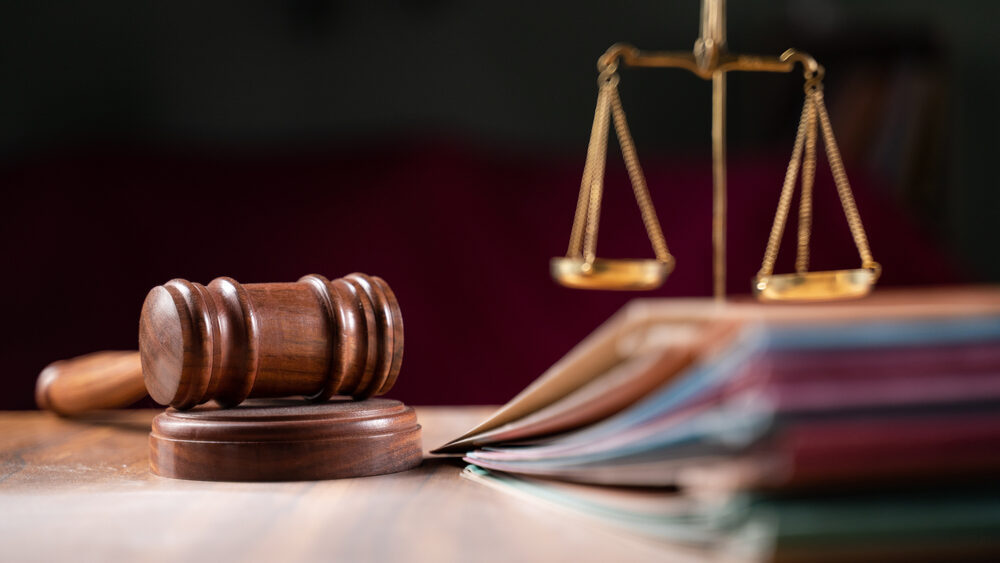How to Document Personal Injuries: A New Jersey Perspective

Experiencing a personal injury is traumatic, both emotionally and physically. The last thing you want is to be caught in a whirlwind of legal complications in its aftermath. However, the silver lining is that, with appropriate documentation, the road to justice can be made smoother. For those in New Jersey, the stakes are just as high as anywhere else, and knowing how to properly document your injuries can significantly impact your legal claim’s success.
At Lombardi & Lombardi, we have guided numerous clients through this exacting process. We aim to impart our knowledge on the best practices for documenting personal injuries, drawing from our extensive experience in the field.
The Critical Role of Documentation in Personal Injury Cases
Documentation is a pivotal component of personal injury claims, especially in a state like New Jersey with its distinct legal parameters. When an individual is injured due to someone else’s negligence, documenting the injury and its repercussions can significantly impact the claim’s outcome. Here’s why documentation is indispensable in personal injury cases in New Jersey:
Establishing a Tangible Record
- Unbiased Evidence: While memories may fade or become distorted over time, documents serve as an unbiased, clear record of events and injuries.
- Chronological Clarity: A precise and detailed documentation offers a chronological narrative of the incident, medical interventions, and recovery trajectory, which is invaluable during legal proceedings.
Strengthening Your Claim
- Undeniable Proof: Comprehensive documentation acts as irrefutable evidence. Whether you’re negotiating with insurance companies or presenting your case in court, your claim’s strength relies heavily on the quality and thoroughness of your documentation.
Quantifying Damages
- Financial Impact: Compensation in personal injury cases is often calculated based on medical bills, lost wages, and other tangible losses. Proper documentation offers a clear picture of the financial burden the injury has imposed.
- Comparative Negligence in NJ: New Jersey operates under a “comparative negligence” rule. If a plaintiff is partially at fault, their compensation may be reduced proportionally. Accurate documentation can help establish the degree of each party’s liability.
Verifying Non-Economic Damages
- Beyond the Bills: Apart from medical bills and lost wages, personal injury victims in New Jersey can claim non-economic damages like pain, suffering, and emotional distress. Documenting symptoms, therapy sessions, or personal journal entries can help quantify these intangible losses.
Navigating New Jersey’s Legal Timelines and Systems
- Statute of Limitations: New Jersey has a statute of limitations for personal injury claims. Proper documentation ensures that all events, treatments, and pertinent information are recorded within the legal time frame.
- New Jersey’s No-Fault Car Insurance System: For car accident injuries specifically, New Jersey employs a no-fault system. This means injured drivers turn to their insurance policies for compensation before holding someone else at fault. Proper documentation supports claims with insurance companies and, if necessary, can be crucial if one decides to step outside the no-fault system to lodge a claim against another party.
Consistency and Accuracy
- Minimizing Discrepancies: Consistent and timely documentation minimizes the chance of discrepancies or conflicting information. Such discrepancies can be exploited by opposing parties to undermine the validity of a claim.
Facilitating Legal Representation
- Empowering Your Attorneys: Proper documentation helps attorneys build a robust case. When lawyers have access to comprehensive records, they can more effectively strategize, negotiate, and litigate on your behalf with greater impact.
Creating a Personal Reference
- Keeping Track: Having detailed records can be beneficial for the injured party as a personal reference, ensuring they’re up-to-date with treatments, medications, and appointments.
Best Practices for Evidence Collection
Collecting evidence is a critical aspect of building a robust personal injury claim in New Jersey. Proper evidence not only strengthens your case but also ensures you receive the compensation you’re entitled to. Here’s a comprehensive list of best practices for collecting evidence after a personal injury:
Immediate Medical Examination
- Urgent Medical Attention: Seek medical attention as soon as possible. This ensures your safety and provides an immediate medical record post-incident.
- Injury Documentation: Ensure all injuries, even those that seem minor, are documented.
Photographic Evidence
- Take clear, high-resolution photos of your injuries from multiple angles. This visual proof helps establish the severity and progression of injuries.
- Photograph the scene of the accident. Include any potential hazards, skid marks, property damage, and other relevant details.
- Use a camera or phone that timestamps photos for additional authenticity.
Detailed Personal Accounts
- Record or write down everything you remember about the incident as soon as possible.
- Include specifics: how the incident occurred, the time of day, weather conditions, who was present, and any immediate effects you felt.
Witness Statements
- Witnesses can provide an impartial account of the incident. Collect names, addresses, and contact numbers of any potential witnesses.
- If possible, get a brief written statement from them about what they saw. Make sure they sign and date their statements.
Maintain a Medical Diary
- Keep a log of all medical consultations, treatments, medications, and your recovery progress.
- Note any pain, discomfort, or emotional distress experienced during recovery.
Financial Records
- Save every bill, receipt, and invoice related to the injury. This should include medical bills, therapy costs, medications, and any related equipment (like crutches or braces).
- Document transportation costs, especially if you’ve had to visit specialists or receive treatments out of town.
Evidence of Lost Income
- If your injury caused you to miss work, maintain a record of lost workdays and wages.
- Obtain a statement from your employer detailing your absence and its financial impact.
Collect Physical Evidence
- If there are physical items that played a role in your injury (a faulty product, for instance), preserve them in their post-accident state.
- This tangible evidence can be critical in product liability or premises liability cases.
Avoid Social Media Sharing
- Refrain from discussing your injury or posting updates about it on any social media platform. Anything you share can potentially be used against you in your claim.
Official Reports
- Obtain copies of any official reports related to the incident, such as a police report in the event of a traffic accident.
Engage a Personal Injury Attorney Early
- An experienced attorney, especially one familiar with New Jersey’s legal landscape, can guide you in collecting and preserving the most compelling evidence for your case.
In New Jersey and elsewhere, evidence is the foundation of any personal injury claim. A thorough, timely, and organized collection of evidence enhances your chances of a favorable outcome.
Contact an Experienced Personal Injury Lawyer at Lombardi & Lombardi for a Free Consultation About Your Case Today
In New Jersey, as is the case everywhere, documentation is the cornerstone of a successful personal injury claim. While the aftermath of an injury can be overwhelming, dedicating time to thorough documentation can pave the way for justice and rightful compensation.
If you or a loved one has suffered a personal injury, let Lombardi & Lombardi be your guiding light. With years of experience in personal injury law in New Jersey, our experts can offer you the guidance, support, and representation you deserve.
Don’t navigate this journey alone. Contact Lombardi & Lombardi today, and let us fight for the justice you rightfully deserve.






 CALL NOW
CALL NOW